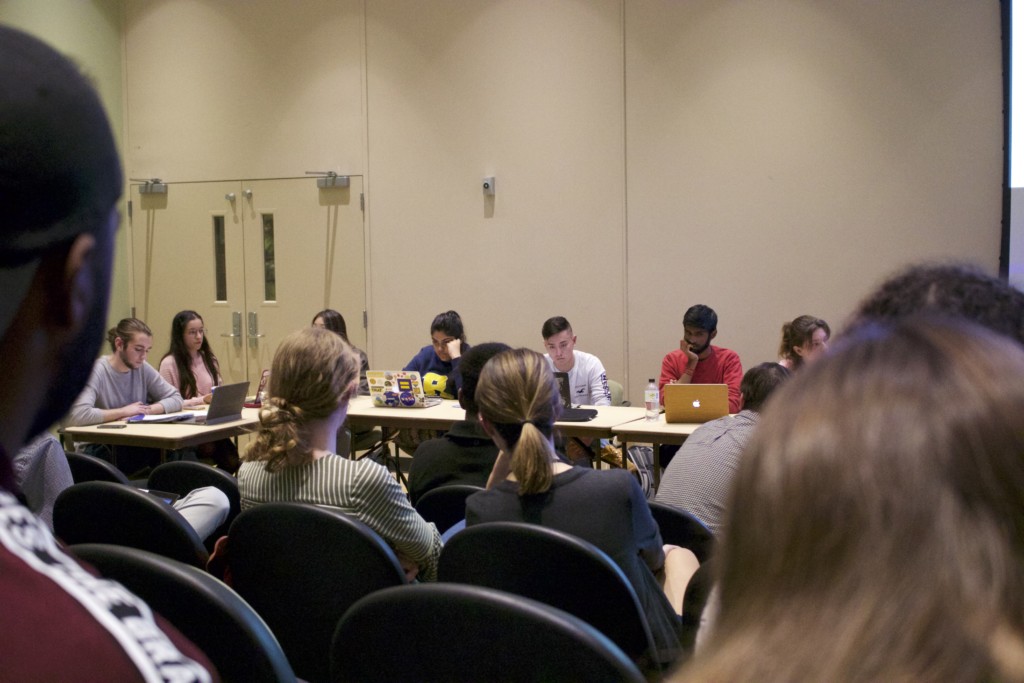An Oct. 21 senate meeting anticipated to host debate on the near-removal of the Palestinian flag veered into a heated two-hour discourse scrutinizing an email sent out that morning by SA leadership and UR administration.
The email was meant to address recent campus conflicts, including the China-Tibet dispute, which began when College Republicans hosted a dialogue on Tibetan democracy that was considered by some to be too one-sided. The controversy was exacerbated by an incident in Wilson Commons’ Starbucks in which a student placed a chair with a flyer saying “Tibet is part of China” next to a group of visiting Tibetan monks.
The email, which was written without input from SA senators, begins: “You may be aware of recent events that have caused distress in our community. We would like to reaffirm that our campus community is one of inclusion.”
Junior Amanda Liang posted a screenshot of the email on a popular student Facebook group later that day, with the caption: “What a generic response to specific events that are totally not going to be recognized by the administration as hate crimes.”
Liang spoke at senate comparing the statement with the email SA sent out a month ago after an incident of racist vandalism. That email, Liang said, contained more specific information about its subject, and took a side in the debate. Liang said the more recent email’s lack of detail indicated a lack of cultural familiarity with the topic.
“Do you not know how to write this letter?” she asked. “Do you not know how to speak about these issues that involve the foreign affairs of other countries and people who are perhaps not your own?”
Referring to the statement’s assertion that those affected had participated in “meaningful dialogues,” sophomore None Gongyal said no such dialogues were available to Tibetan students.
“Where was the dialogue hosted?” Gongyal said. “Where did this dialogue take place? I was never invited. I am the one who was affected. [Tibetan students] are only five individuals on campus, and we do not feel safe on campus since this took place.”
Senator first-year Christopher Lu responded to the first criticism, saying that it would have been impossible for the statement to take a position on the topic without creating further problems.
“It’s really difficult to make a statement that everyone will be happy with,” Lu said.
Other senators were unhappy with the statement, and their lack of control over its message.
“I’m in a position where I’m supposedly able to make change,” Senator senior Aya Abdelrahman said. “But I’m frustrated, I can’t imagine how frustrated you would be when you’re on the other end, and you’re trying to reach out to administration, and then you find that SA is not really representing you.”
“As the child of refugee parents from Vietnam, if I were in this situation, I would want to leave campus,” said Senator sophomore Brendan Tran.
SA President and senior Jamal Holtz defended the ambiguity of the statement.
“The reason why the statement was general is because […] there are incidents that happen beyond the Chinese student and Tibet issue,” Holtz said. “The students who report those issues don’t want it to be public. They just want us to take action.”
Holtz also apologized for any offense caused by the statement, saying, “What we wanted to achieve […] was the fact that we heard multiple issues and ideas and thoughts on what we should do. We wanted to bring a sense of ‘we hear you, this is what we think.’”



